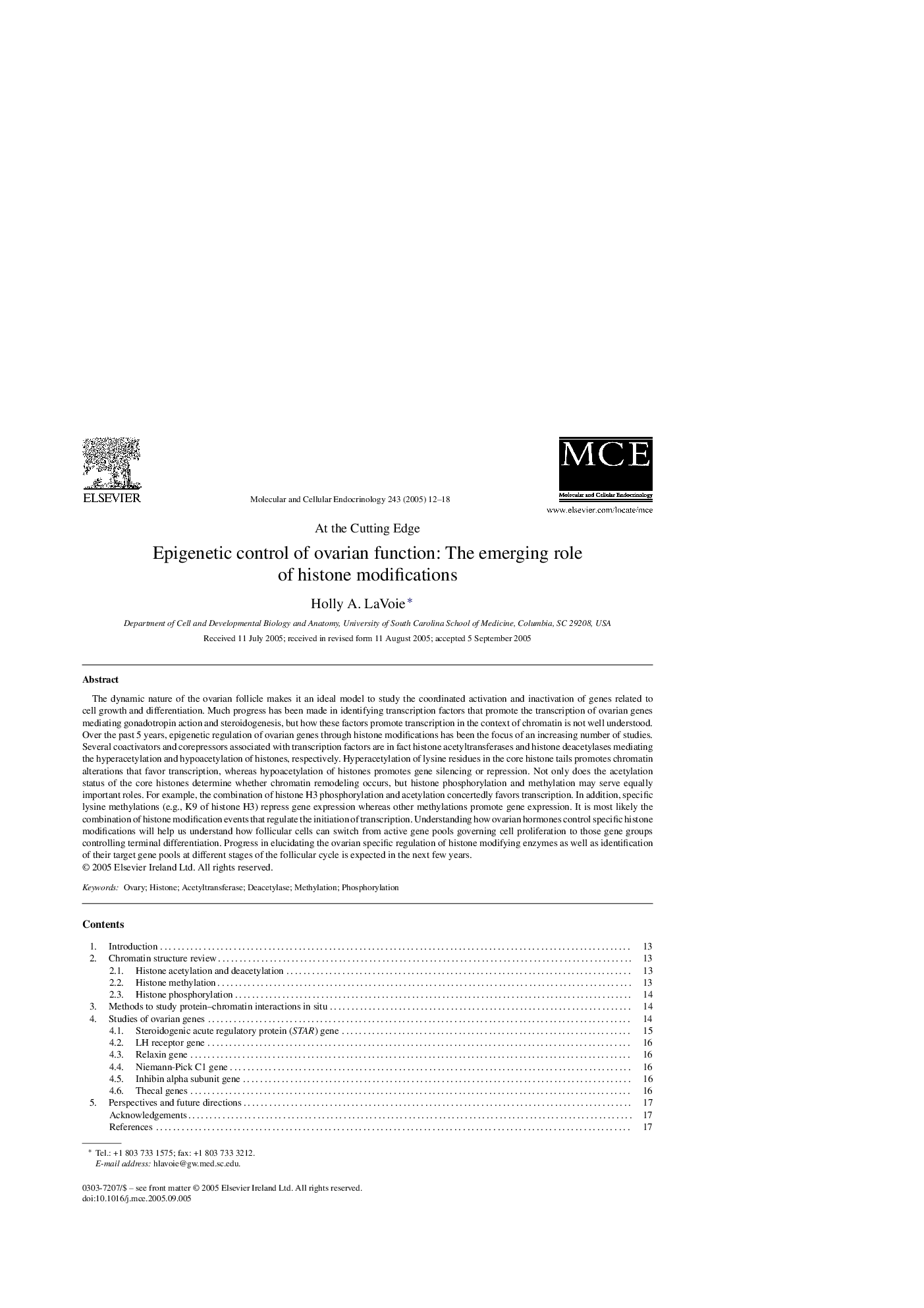| کد مقاله | کد نشریه | سال انتشار | مقاله انگلیسی | نسخه تمام متن |
|---|---|---|---|---|
| 9914887 | 1551014 | 2005 | 7 صفحه PDF | دانلود رایگان |
عنوان انگلیسی مقاله ISI
Epigenetic control of ovarian function: The emerging role of histone modifications
دانلود مقاله + سفارش ترجمه
دانلود مقاله ISI انگلیسی
رایگان برای ایرانیان
کلمات کلیدی
موضوعات مرتبط
علوم زیستی و بیوفناوری
بیوشیمی، ژنتیک و زیست شناسی مولکولی
بیولوژی سلول
پیش نمایش صفحه اول مقاله

چکیده انگلیسی
The dynamic nature of the ovarian follicle makes it an ideal model to study the coordinated activation and inactivation of genes related to cell growth and differentiation. Much progress has been made in identifying transcription factors that promote the transcription of ovarian genes mediating gonadotropin action and steroidogenesis, but how these factors promote transcription in the context of chromatin is not well understood. Over the past 5 years, epigenetic regulation of ovarian genes through histone modifications has been the focus of an increasing number of studies. Several coactivators and corepressors associated with transcription factors are in fact histone acetyltransferases and histone deacetylases mediating the hyperacetylation and hypoacetylation of histones, respectively. Hyperacetylation of lysine residues in the core histone tails promotes chromatin alterations that favor transcription, whereas hypoacetylation of histones promotes gene silencing or repression. Not only does the acetylation status of the core histones determine whether chromatin remodeling occurs, but histone phosphorylation and methylation may serve equally important roles. For example, the combination of histone H3 phosphorylation and acetylation concertedly favors transcription. In addition, specific lysine methylations (e.g., K9 of histone H3) repress gene expression whereas other methylations promote gene expression. It is most likely the combination of histone modification events that regulate the initiation of transcription. Understanding how ovarian hormones control specific histone modifications will help us understand how follicular cells can switch from active gene pools governing cell proliferation to those gene groups controlling terminal differentiation. Progress in elucidating the ovarian specific regulation of histone modifying enzymes as well as identification of their target gene pools at different stages of the follicular cycle is expected in the next few years.
ناشر
Database: Elsevier - ScienceDirect (ساینس دایرکت)
Journal: Molecular and Cellular Endocrinology - Volume 243, Issues 1â2, 24 November 2005, Pages 12-18
Journal: Molecular and Cellular Endocrinology - Volume 243, Issues 1â2, 24 November 2005, Pages 12-18
نویسندگان
Holly A. LaVoie,